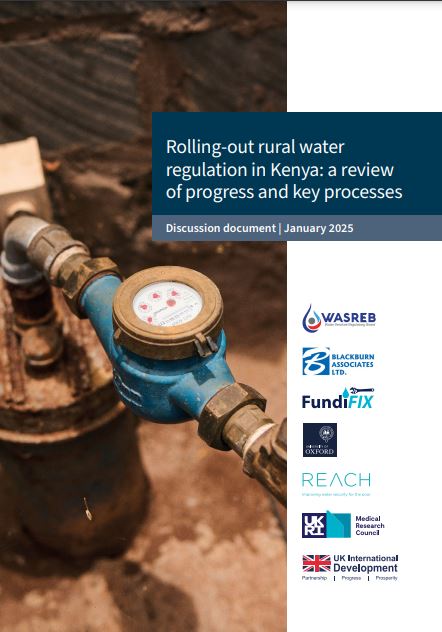Article 43 of the Constitution of Kenya guarantees every person the right to clean and safe water in adequate quantities and meeting reasonable quality standards. However, a comprehensive regulatory framework for water services has yet to be extended to rural areas of the country. This absence of a comprehensive framework means that rural areas still rely on community management models based on voluntary management with little or no accountability. As a result, people in rural areas are effectively discriminated against regarding their rights to water and sanitation and the sustainability of these services over time. To redress this inequality, Kenya’s Water Services Regulatory Board (Wasreb, the Regulator) has prioritized extension of regulation to the rural sector in its strategic plan for 2023-2027.
This document discusses the need for step-wise progression towards implementing Wasreb’s Guideline for management of rural water and sanitation services. To that end, it combines insight from engagements with Wasreb, rural water service providers, and other stakeholders to identify where there is a need to develop, strengthen and/or clarify key processes. It has been written to serve as a resource for:
• clarifying the key challenges and potential ways forward to progress regulation to improve the sustainability and quality of rural water services in Kenya;
• supporting Wasreb in communicating its rollout plan to counties, rural water service providers, and other partners working in rural water; and
• sharing insights for broader application from Kenya’s progress on rural water regulation that may be helpful in other countries.

